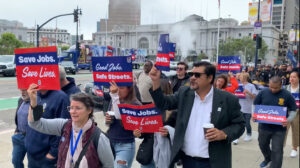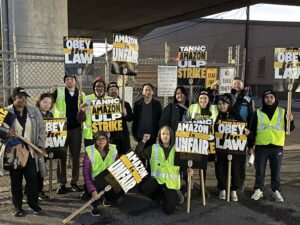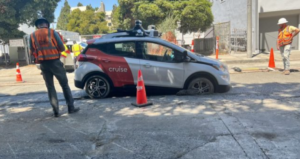The case that has all of Silicon Valley shaking in its boots
June 5, 2018The California Supreme Court issued a crushing blow to the “gig economy” in a late-April ruling. In Dynamex Operations West v. Lee, the Court imposed a standard that will make it much harder for employers to escape state employment standards by calling their workers “independent contractors” when there is little to nothing “independent” about their work.
Dynamex is a nationwide package and document delivery company (for Home Depot and Office Depot among others), which decided to reclassify all its employee drivers as independent contractors. In other words, on Monday, their delivery drivers were employees and on Tuesday – with no change in their day-to-day job duties – they were suddenly “independent contractors,” required to:
Provide their own vehicles and pay for all of their transportation expenses, including fuel, tolls, vehicle maintenance and insurance, taxes, and workers’ compensation insurance;
Accept a percentage of the delivery fee paid by the customer on a per delivery basis or a flat fee basis per item delivered (instead of wages);
Work without any guarantee of the number or type of deliveries they will be offered; and
Wear Dynamex shirts and badges (purchased at their own expense).
It’s all about the ABCs
After exhaustively reviewing relevant cases, the California Supreme Court adopted the “ABC test.” Under the ABC test, a company that wants to classify workers as independent contractors has the burden of establishing that the worker,
A. Is free from control and direction of the hirer in connection with the performance of the work, both under the contract for the performance of such work and in fact; and
B. Performs work that is outside the usual course of the hiring entity’s business; and
C. Is customarily engaged in an independently established trade, occupation, or business of the same nature as the work performed for the company.
Applying these three tests, the Court offered the following example:
[W]hen a retail store hires an outside plumber to repair a leak in a bathroom on its premises or hires an outside electrician to install a new electrical line, the services of the plumber or electrician are not part of the store’s usual course of business… On the other hand, when a clothing manufacturing company hires work-at-home seamstresses to make dresses from cloth and patterns supplied by the company that will thereafter be sold by the company… or when a bakery hires cake decorators to work on a regular basis on its custom-designed cakes… the workers are part of the hiring entity’s usual business operation…
In short, what the case holds is that employers are at risk for state law back pay and penalties when they seek to force their workers to bear the risk of on-the-job injury, deprive them of meal and rest breaks, and escape overtime obligations by pretending that they are “independent contractors.”
If California law will no longer tolerate this scam, does it follow that employees misclassified under state law as independent contractors can now also be organized under the National Labor Relations Act or have the protections of federal wage and hour laws?
That’s the next fight: If employers have to conform to this new case, it is going to be hard to argue that a worker that is an employee for California purposes remains an “independent” non-employee for federal purposes.*
What will this case mean for Uber, Lyft, Flowers, Google, Apple and other companies whose business model is built on the fiction that they do not employ their workers? It means that they have to assume the costs and obligations of other employers who have played by the rules and that the legal barriers to organizing these companies are coming down.





